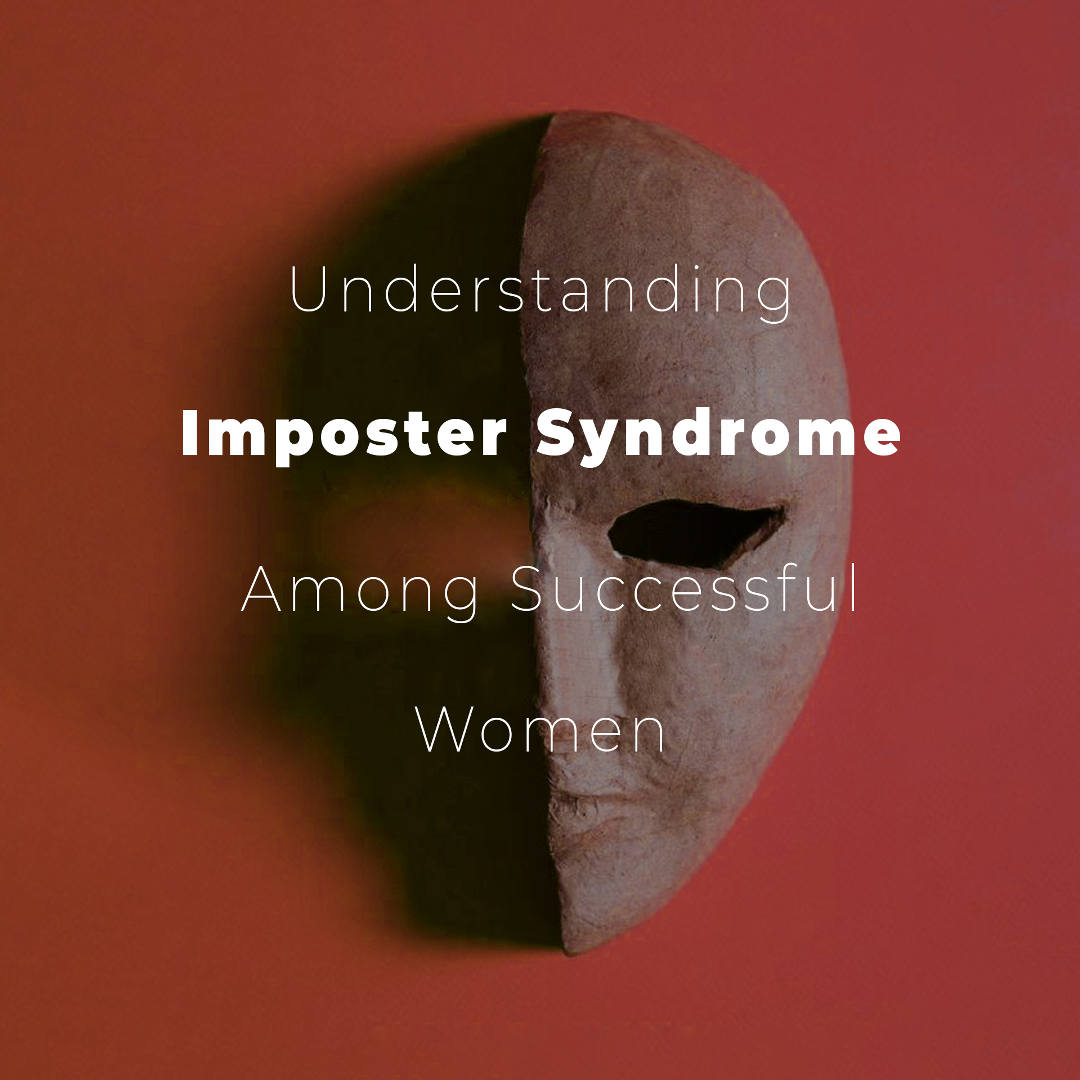Overview:
- Imposter Syndrome is a chronic psychological pattern where achievers often struggle with feeling undeserving of their success.
- Societal pressures and workplace dynamics often amplify these feelings of inadequacy in women.
- It often takes a mental toll on women in terms of how self-doubt impacts confidence and overall mental well-being.
- Challenging imposter syndrome and positive analysis of one’s achievements can help overcome self-doubt and embrace your achievements with confidence.
It is not uncommon for women to downplay and hesitate while addressing their achievements. I remember my mother completing her degree when I was a child. However, most of the applause was directed at my father for being a supportive husband. Many women leaders feel unworthy of the recognition and accolades they receive. They often downplay it by attributing their success to other people and factors like luck in their lives.
This pattern or phenomenon experienced chronically is called imposter syndrome. Irrespective of gender or career paths, self-doubt is a common occurrence among professionals. Imposter Syndrome is more pervasive and intense than self-doubt. It is characterized by a chronic feeling of inadequacy despite clear evidence of success. While self-doubt is situational, imposter syndrome makes one feel unqualified for their achievements even with established facts and history.
The Quiet Struggle: Navigating Self-Doubt and Success
A KPMG study of female executives across industries on imposter syndrome was released. Results reflected that 63 percent of female employees are proud of their negligible representation but also grapple with imposter syndrome. Even women with prestigious positions, degrees, and accolades often experience the subtle fear of ‘not being good enough.
It often manifests subtly like hesitation in voicing opinion in a closed setting to even or present ideas. Most women are bound by the societal pressure to appear humble and feminine. This prejudice can again be reflected through small acts. Downplaying their ideas and giving their male co-workers the chance to speak their minds is a blazing example.
Another characteristic that shows imposter syndrome among high-achieving women is over-explaining or overcompensating. This comes into play to “prove” their worth, despite already having demonstrated competence. They also might avoid taking on new challenges or leadership roles, fearing to meet expectations. Women also feel pressure to display a flawless image according to beauty standards in the workplace. This constant feeling of exhaustion and underconfident limits their potential. These subtle behaviors can gradually erode confidence and create a cycle of self-doubt and anxiety.

Unpacking Imposter Syndrome
Most high-achieving women exhibit a psychological pattern where they doubt their abilities. They do this despite their accomplishments and evidence of their competence. It is an unspoken norm for women to attribute their success to luck, or timing. Imposter syndrome among women goes a step ahead of just creating discomfort in the workplace. Individuals can come to believe that their images are fraudulent. This can lead to anxiety, stress, and a constant fear of failure or being “found out”. This inner battle creates a dual pressure of excelling in both professional and personal spheres. Furthermore, this can lead to a vicious cycle leading to a deep sense of inadequacy.
Root Causes in Women
Parenting styles and early childhood experiences add up to imposter syndrome among individuals. The need to perform for validation, constant comparison with siblings, and sharp criticisms of mistakes are to name a few. The feeling of inadequacy topples to a point where the individual can feel a sense of inferiority among peers. This feeling in adults is carried on to work settings.
Studies show Imposter Syndrome among women is deeply embedded in societal and cultural norms. Women are expected to excel in multiple roles. This includes juggling career ambitions with family responsibilities, leading to a constant fear of not measuring up. Gender stereotypes add to the prevalent performance pressure. Women feel the need to work twice as hard to gain the same recognition as their male peers.
Research shows that women in male-dominated fields experience a sense of inferiority related to their self-worth and achievements. The effect is reflected in the form of overcompensation, perfectionism, or avoiding opportunities. Moreover, it can be mentally overwhelming. The emotional toll is greater, leading to chronic anxiety, stress, and isolation. Constant comparison to others, can further reinforce the sense of being an “imposter.”

The Paradox of Success
Usually success and achievements bring an idea of self-fulfillment to individuals. Achievements and recognition signal skills and talent. However, women exhibit an ironical nature in the face of success. The paradox is that their feelings of self-doubt and inadequacy intensifies with greater recognition in their careers. It adds up more pressure on women to achieve more rather than making secure in their skills and talent. The higher the success they experience, the greater their fear of not being able to sustain their success. Furthermore, this leads to the belief that they have somehow “tricked” others into thinking they are capable. Thus, the cycle fueling heightened anxiety and imposter syndrome follows.
Irony of Achievement
The irony of achievement reveals a paradox. This goes as women achieve higher levels of success, and their feelings of being an imposter can intensify. In most cases, success alleviates self-doubt. However, through the lens of this paradox success often magnifies it, as the stakes feel higher and expectations grow. The more accomplishments women rack up, the more they fear being exposed as unworthy, despite evidence to the contrary.
Pressure of Perfection
The pressure of perfection further exacerbates these feelings leading to guilt. Successful women often feel compelled to serve as role models or trailblazers. This adds pressure to not only meet but exceed expectations further heightening self-doubt. The fear of not living up to an idealized image fuels the idea of being fraudulent. Further making it difficult for them to accept their successes as genuine. They become their own harshest critics, driven by unrealistic standards of excellence.
Stories of High-Profile Women
Many women who have held powerful positions have publicly shared their struggles with imposter syndrome. Sheryl Sandberg, former COO of Meta Platform Facebook, admitted to grappling with feelings of inadequacy despite her career success. Famous author and feminist, Maya Angelou often attributed her accomplishments to other factors with the fear of appearing ‘fraud’. She revealed that she felt her success was due to luck rather than talent. Women who have been significant figures in their respective fields for decades still experience profound self-doubt. This further transcends into feeling like an ‘imposter’ among peers.
Overcoming Imposter Syndrome Among Women
The very nature of imposter syndrome is hard to navigate, especially among women. Social conditioning coupled with low self-esteem can make it difficult to even acknowledge it in the first place. Here are some tips to get on the right track faster.
Self-reflection: Recognizing and acknowledging feelings of inadequacy is the first step to understand the psychological pattern forming it. Navigating the root causes becomes easier with self-reflection. Only then the process of overcoming self-doubt can follow. Ignoring or suppressing these emotions can only worsen the situation. In the long term, it can fester and impact confidence and performance.
Celebrating Achievements: A success journal of your achievements and positive feedback can serve as a tangible reminder of your capabilities. Practicing self-compassion is equally important; being kind to oneself and acknowledging efforts can counteract harsh self-criticism. Seeking professional help, such as therapy or coaching, can aid these strategies and support for navigating these feelings.

Positive Reframing of Mind: Positive reinforcements of thoughts can be a game changer when it comes to addressing the feeling of being ‘incapable’. A positive practice of self-affirmation and focusing on their strengths and accomplishments can help with rewiring of belief about oneself. These beliefs can further challenge the existing feelings of inadequacy. Moreover, they can build greater confidence and diminish the impact of imposter syndrome over time.
Building a supportive community: Inclusivity at the workplace goes beyond gender or conduct. Finding mentors and peers who understand and normalize the conversation around imposter syndrome can make a significant difference. These support systems stem from empathy. Shared experiences with ones facing similar challenges can foster a sense of belonging and reduce feelings of isolation. This is where a community of women can be a safe space for others to feel assured, safe, and validated.
Conclusion:
A cultural shift is crucial for women to embrace their successes without guilt or doubt. By changing the narrative for women at a young age the stage for a greater change can be set. Women celebrating women’s achievements can be an empowering experience. Actionable strategies to overcome imposter syndrome are acknowledging your own achievement and standing tall with them. A community can encourage each other to be proud and feel validated. We must remember to celebrate our confidence and self-worth irrespective of social prejudices attached to women of success.


